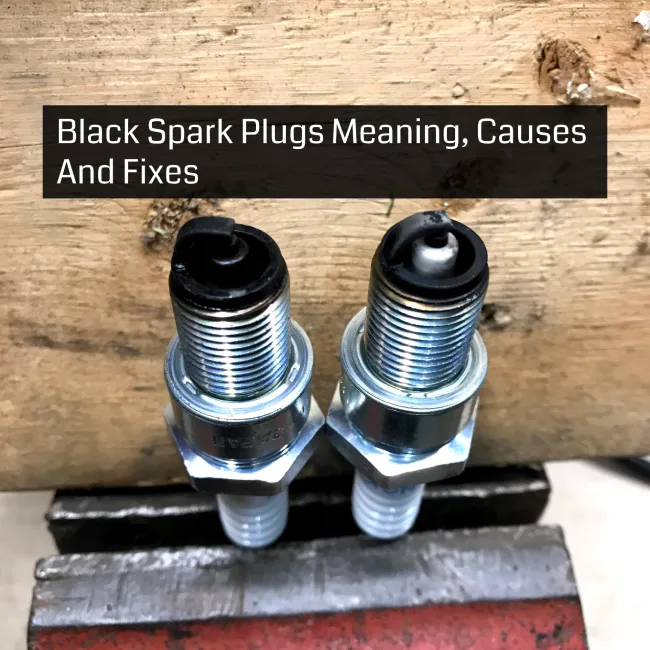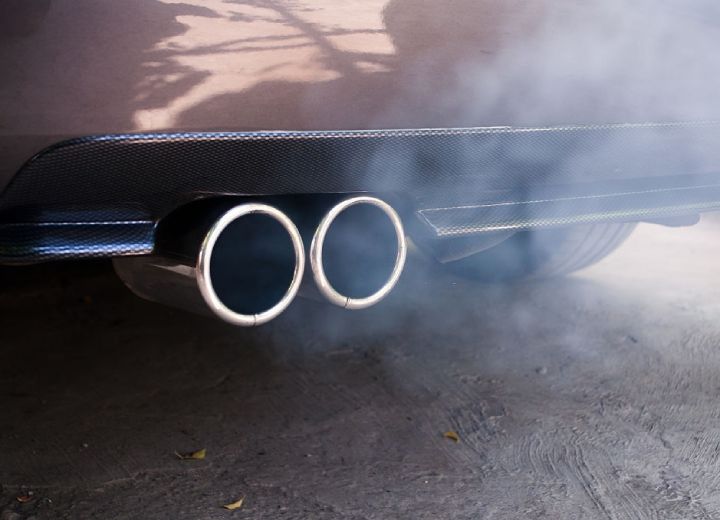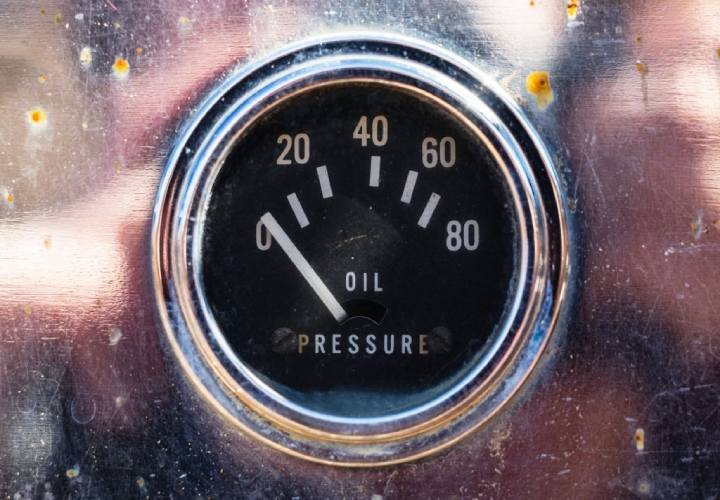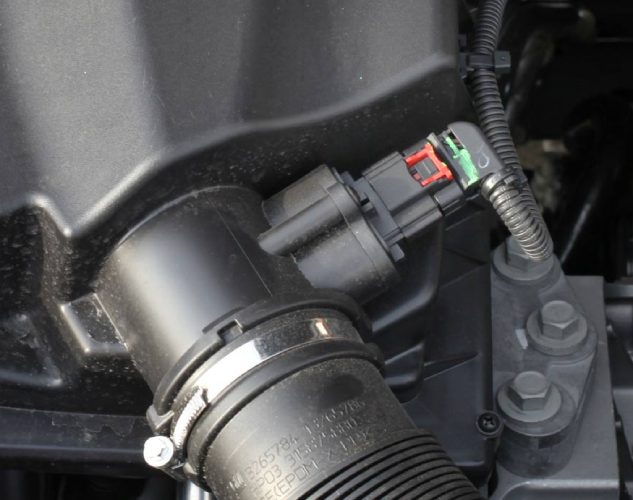Black spark plugs are a common issue that can affect engine performance and lead to problems like misfires, rough idling, and decreased fuel efficiency. It’s important for drivers to understand the causes, diagnosis, and solutions for black spark plugs to keep their vehicle running smoothly.
Here’s What Black Spark Plugs Means
Black spark plugs are a common issue caused by carbon buildup, rich fuel mixture, oil fouling, and other factors fouling the plugs. This prevents proper ignition leading to symptoms like misfires, rough idling, and power loss. The color and location of deposits on the plugs can help diagnose the root cause – black dry soot indicates carbon fouling, wet oily deposits signal oil fouling.
Solutions include replacing fouled plugs, adjusting air-fuel ratio, cleaning air filter, fixing leaks, and tuning ignition system. Preventative maintenance like regular plug changes, using quality plugs, monitoring performance, and addressing problems quickly helps avoid fouling issues. Properly reading spark plugs provides valuable insights into engine condition.
Causes of Black Spark Plugs
There are several potential root causes that can lead to black spark plugs. Being aware of the most common culprits makes it easier to properly diagnose and address this issue.

Carbon Buildup
One of the main reasons spark plugs end up fouled with black residue is carbon buildup. This typically occurs when:
- Oil leaks into the combustion chamber and leaves carbon deposits on the spark plug
- Unburned fuel gets stuck on the spark plug tip and bakes into hard carbon
- The vehicle has frequent short trips and cold starts, which prevents the engine from getting hot enough to burn off deposits
Carbon fouling on spark plugs is most common in older engines with worn parts that allow oil to leak past seals and rings. Using an oil additive with detergent properties can help clean up excess carbon.
Rich Fuel Mixture
The air-fuel mixture in the engine needs to be precisely calibrated for optimal combustion. If the mixture is too rich – meaning there is excess fuel and not enough air – it can cause black spark plugs due to:
- Incomplete combustion leaving unburned fuel on the spark plugs
- Excess fuel washing away the lubricating oil film on the spark plugs
- Fuel deposits baking onto the electrode surfaces
A rich fuel mixture can be caused by:
- Faulty oxygen sensors providing inaccurate readings to the computer
- Clogged air filters restricting proper airflow into the engine
- Fuel injectors or carburetors supplying too much fuel
- Vehicle modifications increasing air/fuel requirements
Correcting the air-fuel ratio is key to preventing ongoing issues with fouled spark plugs.
Oil Fouling
Oil fouling happens when excess oil makes its way into the combustion chamber. Sources of oil leakage include:
- Worn piston rings no longer sealing properly
- Valve guide seals leaking oil into the ports
- A clogged or faulty PCV system sucking oil into the air intake
The oil essentially bakes onto the spark plug tip, causing a thick black coating. Oil fouling tends to occur after extended periods of low-speed driving.
Additional Causes
Some other causes of black spark plugs include:
- Incorrect spark plug heat range – Using plugs that are too cold can allow deposits to form
- Worn ignition components causing misfires – This allows unburned fuel to collect on the plugs
- Damaged cylinder head gasket allowing coolant leaks – Antifreeze contaminating the plugs can leave dark deposits
Prolonged use of leaded fuel used to be a contributor as well before it was phased out. Identifying the specific root cause is key to finding the proper solution.
Symptoms of Black Spark Plugs
Black spark plugs can cause various symptoms that indicate there are issues with ignition and combustion happening in the engine. Being familiar with these warning signs makes it easier to diagnose dirty or fouled plugs. Here are some of the most common symptoms of black spark plugs.
Poor Engine Performance
As spark plugs become fouled and can no longer ignite the air/fuel mixture efficiently, you will notice a marked decrease in engine performance. Acceleration will become sluggish, and the engine may feel underpowered. Misfires and loss of power under load are key indicators of black spark plugs.
Misfires
Misfires occur when fuel fails to ignite in one or more cylinders. This causes sputtering, loss of power, and rough idling. Misfires are a classic symptom of fouled or dirty spark plugs that can no longer conduct the high voltage current properly to fire the plug.
Rough Idling
When idling at a stoplight or in park, a rough or uneven idle can signal fouled spark plugs. The engine will sound erratic instead of maintaining a steady idle. Misfires in one or more cylinders cause the roughness.
Decreased Fuel Efficiency
Since the fouled spark plugs cannot ignite the fuel mixture efficiently, unburned fuel ends up going out the exhaust. This decreases fuel economy. Drivers may notice the gas mileage dropping significantly.
Increased Emissions
The unburned hydrocarbons being expelled from the exhaust will also cause an increase in emissions like carbon monoxide and nitrogen oxides. This causes the vehicle to pollute more.
Check Engine Light
If the engine computer detects misfires or excessive emissions from dirty spark plugs, the check engine light will illuminate. The computer will log trouble codes that indicate which cylinder(s) are experiencing misfires.
Addressing fouled spark plugs right away is important not only to improve engine performance but also to prevent raw fuel from damaging the catalytic converter in the exhaust system. The symptoms above are telltale signs that the spark plugs need to be inspected and replaced.
How to Diagnose Black Spark Plugs
When troubleshooting issues like poor performance, misfires, or rough idling, black spark plugs should be one of the first things to inspect. Here are some tips on diagnosing fouled or dirty spark plugs.
Visual Inspection
Carefully remove the spark plugs one by one and examine their condition. Look for:
- Black oily deposits or dry black soot on the metal surfaces and ceramic insulator
- Corrosion or rust on the electrodes
- Abnormal erosion or damage to the electrodes
Compare all the plugs to identify issues affecting only specific cylinders.
Reading the Plugs
The color and location of deposits on a spark plug can indicate the type of fouling:
- Oil fouling – Wet black deposits that are thick on the insulator and lower electrode
- Carbon fouling – Dry black sooty buildup on the tip and upper electrode
- Overheating – Light gray or white ash-like deposits
Use a spark plug reading chart to diagnose issues based on where combustion deposits are located on the plug.
Ignition System Tests
Problems with ignition components can cause misfires leading to fouled spark plugs. Test the:
- Coil packs – Check resistance specs and voltage output
- Plug wires – Look for cracked insulation or loose connections
- Distributor cap – Examine for corrosion, damage, and carbon tracks
- Rotor button – Should not have excessive wear or carbon buildup
Faulty ignition parts can be pinpointed if misfires only occur on specific cylinders.
Check for Vacuum Leaks
Vacuum leaks allow unmetered air to enter the engine causing a lean fuel mixture. This can cause misfires and incomplete combustion. Check common leak points like hoses, gaskets, PCV valve, etc. Use a smoke machine to detect any hidden leaks.
Inspect Fuel System
Issues like leaky injectors, contaminated fuel, or a malfunctioning fuel pressure regulator can cause a rich fuel mixture. This will show up as carbon fouling on the spark plugs. Inspect all fuel system components if black deposits are present.
By following these diagnostic steps, you can get to the root cause of fouled spark plugs and identify any repairs needed to get your engine running properly again. Don’t ignore this warning sign of potential problems.
How to Fix Black Spark Plugs
Once the root cause of fouled or black spark plugs has been diagnosed, there are several solutions that can get your engine running smoothly again. Here are some of the most effective ways to fix dirty and fouled spark plugs.
Replace Spark Plugs
Replacing the fouled spark plugs with new ones is often the first solution to try. Use manufacturer recommended spark plugs that match the engine specifications. Ensure the spark plug gap is properly set. Replacing plugs clears any built-up deposits and restores proper ignition.
Adjust Fuel Mixture
If a rich fuel mixture is determined to be the cause, adjusting the air/fuel ratio is critical. This may involve:
- Replacing a faulty oxygen sensor to improve feedback to the computer
- Cleaning or replacing a clogged air filter
- Adjusting the carburetor settings for proper fuel flow
- Checking for faulty fuel injectors or leaky injector seals
Properly calibrating the air/fuel mixture prevents incomplete combustion and excess fuel from fouling the new spark plugs.
Clean or Replace Air Filter
A restricted air filter allows less air into the engine, sending a lean mixture to the cylinders. Replacing the filter restores proper airflow. If the filter is reusable, cleaning it thoroughly helps prevent misfires and fouling.
Inspect Ignition System
Faulty ignition system components like bad coil packs, spark plug wires, distributor cap, etc. can cause misfires leading to fouled spark plugs. Replace any worn or damaged ignition parts and verify proper operation.
Adjust Spark Plug Gap
Ensure the spark plug gap is set according to manufacturer specifications, usually between 0.6-1.2 mm. A gap that is too wide prevents efficient sparking, while one too narrow causes misfires.
Use Proper Heat Range Plug
Using the wrong spark plug heat range for the engine and operating conditions can lead to premature fouling. Consult the vehicle specs to determine the ideal heat range.
How to Prevent Spark Plugs from Turning Black
The best way to deal with fouled or black spark plugs is to prevent them from occurring in the first place. Here are some key preventative maintenance steps that can help avoid issues with dirty spark plugs.
Regular Tune-Ups
Routine tune-ups should include spark plug inspections and replacement at the intervals recommended by the manufacturer, usually every 30,000-60,000 miles. Spark plugs and wires degrade over time and need to be swapped out.
Use High-Quality Spark Plugs
Investing in top-tier spark plugs that are properly gapped provides reliable performance and reduces the chances of early fouling. Avoid cheap or low-quality plugs that can have inconsistent quality. Stick with OEM or reputable aftermarket brands.
Monitor Engine Performance
Drivers should be attentive to changes in engine sounds, responsiveness, and gas mileage. A sudden drop in performance can indicate spark plug issues. Early diagnosis prevents extensive damage.
Adjust Fuel Mixture
The engine computer constantly adjusts the air-fuel ratio, but this can get thrown off by problems like a faulty oxygen sensor. Getting periodic tune-ups checks for proper fuel calibration to prevent incomplete combustion.
Keep Air Filter Clean
A clogged air filter allows damaging contaminants into the engine while reducing airflow. Regularly replacing or cleaning the air filter based on mileage maintains good filtration and ventilation.
Use Fuel Injector Cleaner
Adding a high-quality fuel injector cleaner periodically cleans deposits from injectors and intake valves. This improves fuel atomization and combustion, reducing carbon fouling of spark plugs.
Fix Oil Leaks Promptly
Any engine oil leaks should be addressed immediately to prevent oil from fouling the spark plugs. Common leak sources include valve cover gaskets, piston rings, PCV system, and crankcase seals.
Drive Regularly
Frequent short trips and excessive idling allow fuel and oil deposits to build up on spark plugs. Regular highway driving helps “clean” deposits off by getting the engine hot enough to burn them off.
Closing Thoughts
Properly maintaining spark plugs is critical to engine performance and longevity. Black spark plugs are a common issue caused by carbon buildup, rich fuel mixtures, oil fouling, and other factors. This fouling prevents proper ignition leading to symptoms like misfires, rough idling, and power loss. Careful inspection and spark plug reading can diagnose fouling.
Replacing plugs, adjusting fuel mixture, cleaning the air filter, and checking ignition components are key solutions. Preventative steps like regular tune-ups, using quality plugs, monitoring performance, and addressing leaks quickly can help avoid fouling.
In summary, black spark plugs are a warning sign of potential engine issues. Addressing fouled plugs promptly minimizes performance problems and expensive repairs down the road. Drivers should learn to read spark plugs to identify fouling causes. Keeping spark plugs operating in optimal condition requires diligence and care from vehicle owners. But the effort pays off through enhanced fuel efficiency, lower emissions, and reduced maintenance costs over the life of the vehicle.
Engineering Coordinator with 5+ years of experience in the automotive manufacturing industry. Currently supporting vehicle development and new model launch activities at Honda Development and Manufacturing of America. Skilled at managing engineering teams, overseeing prototype builds, coordinating testing, and driving continuous process improvements. LinkedIn








